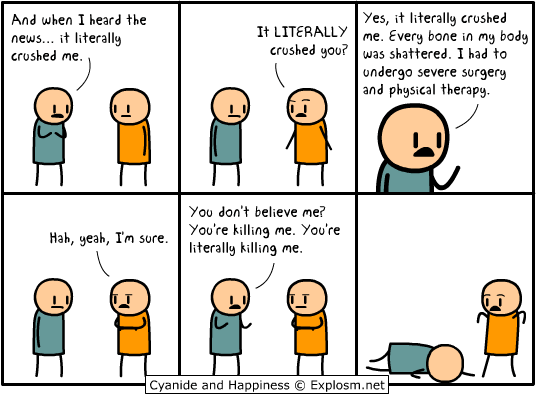
Common Errors in English Emails: Being prevalent in our everyday life, filler words tend to rub off on our writing more often than not. We must take extra care to edit our draft to make sure it sounds professional.
I have heard many people complain about bloated software on their smartphones – they call it “bloatware”. I have a feeling you don’t like it either. So, why do we dislike bloatware so much? Well, because it sits idle and eats up precious memory in your device, adding little or no value.
Involuntarily, we use a lot of bloatware in our daily writing too – words or phrases that add no value to the context of our writing, and potentially confuse the reader. From office emails to product descriptions to blog posts, nearly every piece of writing may contain superfluous words and phrases which reflect poorly on you.
So, let’s fix your bloated emails, shall we?
Words that Can Confuse/Offend Your Reader
There are some words in your emails that can potentially build a wrong impression about you. For example, “actually” can sound confusing, impolite, condescending, and sarcastic to some as it leaves opportunity for misinterpretation.
Here are some example:
- The sky is actually blue.
- You have to actually open the attachments to see my reports.
- I actually fired him yesterday.
Explanation: “Actually” is a mere filler – a pause word that many people plug into a sentence while thinking of what to say next. This word may not be misconstrued in a face-to-face conversation because you see each other and understand the nonverbal cues. However, in written communications, that’s not the case which may lead to misinterpretation of your intention. Why reinforce the obvious when it can potentially lead to misunderstanding!
Words that Convey Hesitations
There are many words that convey your hesitations. We call them weasel words because they are often intentionally used to avoid answering questions clearly or deceive someone.
Here are seven weasel words that affect your credibility
Like: He’s like interested in your proposal.
Sort of/Kind of: I sort of know where you’re coming from.
Maybe: Maybe, I’m not sure.
Perhaps: Perhaps, we can ship your order by tomorrow.
Might: I might be able to complete the project by next week.
Can: I can see where you’re going with this.
Explanation: Excessive words of weasel words not only confuse the read but they make you very unprofessional. You don’t want to come across hesitant, unsure and dishonest in your communications. Before you send an email, take a moment to read out your draft aloud and see if any of your phrases or words make you sound self-doubtful.
Words that Add Nothing to Context
According to Henry James, “Adjectives are the sugar of literature and adverbs the salt.” Just as we need the right proportion of salt in a particular dish for it to taste delicious, we also need to use the right proportion of adverbs, as per the context, for the sentence to make sense and sound convincing. We don’t add salt to coffee because it doesn’t need any. Similarly, there are many contexts that don’t require any adverbs at all.

See the funny comics on “Literally” by The Oatmeal
There are many adverbs that are most abused in day to day speech as well as writing, such as “literally, practically, currently, basically and seriously.”
Literally: I literally fell off my chair laughing.
Practically: He practically came over to me.
Currently: I’m currently pursuing studies for the next one year.
Basically: Basically, I’m not interested in your proposal.
Seriously: I seriously consider your job offer.
Explanation: These words are extraneous and you can do without them. Imagine your email draft as a dish and see if it really requires a “spoonful of salt” to become more meaningful to your reader.
The Challenge
One of the most challenging aspects of writing emails (or any content pieces for that matter) is being clear, direct, and brief. Being prevalent in our everyday life, filler words tend to rub off on our writing more often than not. We must take extra care to edit our draft to make sure it sounds professional.

Mark C. BILLY
Sorry nothing to donate sir.
Mark C. BILLY
Thank you I’m good for now.